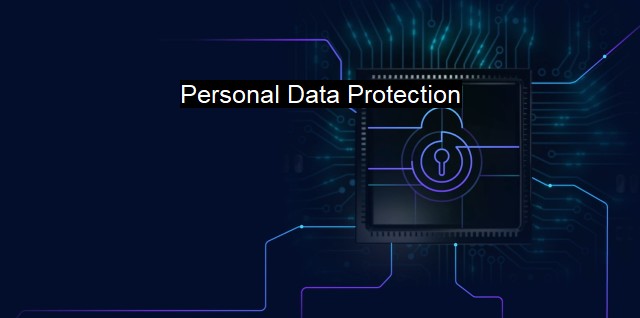What is Personal Data Protection?
Personal Data Protection: Safeguarding Privacy and Security in a Digital Age through Cybersecurity and Antivirus Tools
Personal data protection refers to the measures taken to ensure the privacy and security of personal data that is collected, processed, and stored by individuals, organizations, and governments. With the increasing use of digital technologies for communication and information exchange, the need for personal data protection has become paramount today. Cybersecurity and antivirus software are two essential tools that play a crucial role in safeguarding personal data against unauthorized access, data breaches, and other cyber threats.The protection of personal data is a fundamental right of every individual and is enshrined in international laws such as the General Data Protection Regulation (GDPR) of the European Union and the California Consumer Privacy Act (CCPA) in the United States. This legislation mandates that companies that collect, store, and utilize personal data must establish robust security measures to ensure its safety. while these measures offer some level of protection, more advanced mechanisms such as cybersecurity and antivirus software are necessary to prevent attacks from hackers and other malicious entities.
Cybersecurity, also known as information security, refers to the practices and procedures that organizations use to ensure the confidentiality, integrity, and availability of information systems and data. In the realm of personal data protection, cybersecurity measures include firewalls, encryption tools, and intrusion detection systems to safeguard sensitive personal information. Firewalls act as a barrier between an organization's internal networks and the internet to protect against attacks from external sources. Encryption tools encode personal data, making it unreadable to unauthorized individuals during transmission or storage. Intrusion detection systems monitor and identify potential threats and malicious activity against the network or information system.
On the other hand, antivirus software is a type of cybersecurity solution that guards against threats such as malware, viruses, and other types of cyber attacks. Antivirus software works by scanning systems and devices to detect and remove malicious files that could compromise personal data. This includes blocking and detecting phishing and ransomware attacks, preventing misuse of confidential information, and identifying and preventing unauthorized access to sensitive data.
identity protection is a critical aspect of personal data protection. In addition to cybersecurity and antivirus software, identity protection measures are necessary to prevent identity theft and related cybercrime. Identity protection measures may include credit monitoring, identity theft insurance policy, and multifactor authentication to guard against unauthorized access to personal data. secure passwords and regular password updates are also crucial to ensuring the safety of online accounts and personal data.
cybersecurity and antivirus software are critical components of personal data protection, particularly in today's evolving digital ecosystem. To safeguard personal information, individuals must practice safe computing habits that include regularly updating software, using strong passwords, employing identity protection measures, and investing in security solutions such as cybersecurity and antivirus software. organizations and governments must enforce appropriate security measures to prevent cyber attacks and protect personal data. By implementing these measures, personal data breaches can be minimized or thwarted altogether, ensuring the safety and confidentiality of individuals' personal information.

Personal Data Protection FAQs
What is personal data protection?
Personal data protection refers to the measures put in place to safeguard an individual's personal information from unauthorized access, use, or disclosure. It involves controlling how personal information is collected, used, and shared by organizations and individuals.Why is personal data protection important?
Personal data protection is important because it helps protect individuals' privacy, prevent identity theft and fraud, and maintain the confidentiality of sensitive information. It also helps ensure that organizations comply with legal and regulatory requirements related to data protection.What are some best practices for personal data protection?
Some best practices for personal data protection include using strong passwords, enabling two-factor authentication, regularly updating software and security patches, avoiding public Wi-Fi networks, and being cautious when clicking on links or downloading attachments from unknown sources.What are the consequences of failing to protect personal data?
The consequences of failing to protect personal data can be severe and include financial losses, damage to reputation, legal and regulatory penalties, and loss of customer trust. In some cases, organizations may even face criminal charges or lawsuits for negligence or misconduct related to data protection.| | A | | | B | | | C | | | D | | | E | | | F | | | G | | | H | | | I | | | J | | | K | | | L | | | M | |
| | N | | | O | | | P | | | Q | | | R | | | S | | | T | | | U | | | V | | | W | | | X | | | Y | | | Z | |
| | 1 | | | 2 | | | 3 | | | 4 | | | 7 | | | 8 | | |||||||